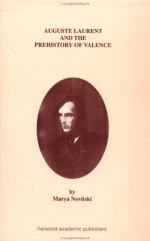|
This section contains 261 words (approx. 1 page at 300 words per page) |
World of Chemistry on Auguste Laurent
Born in 1807, Auguste Laurent was the son of a wine merchant. When he became4 an adult, he took the political stance as a Republican in an authoritarian society. Therefore, although he conducted brilliant research, he could not gain a respectable position and lived most of his life in poverty. Furthermore, he had an abrasive personality and made enemies out of his colleagues. He is famous for his nucleus theory of chemical reaction, which was highly controversial at that time.
Even though Laurent was a student of Dumas, Dumas refused to stand behind Laurent's theory. Only a short time later, Dumas came out with his own theory that essentially was the same as Laurent's theory except in terminology. Laurent worked closely with Gerhardt and it is difficult to determine who offered what in the collaborations. When Gerhardt tried to resolve the inequalities in molecular weights between physical and organic science, it was Laurent who developed the order of the solution. Laurent established that molecular weight refers to the total of all atomic weights in a substance, while equivalent weight refers to the weight in any given reaction. At times, equivalent weight would equal molecular, but not necessarily.
After the Revolt of 1848, his politics were no longer an issue and he received a moderate government position. Laurent died of tuberculosis at age 46 in 1853. With his abrasiveness out of the debate, French scientists felt free to look again at his studies and were impressed. Some of those who blocked his advancement in life sought for government support for his widow and orphans.
|
This section contains 261 words (approx. 1 page at 300 words per page) |


